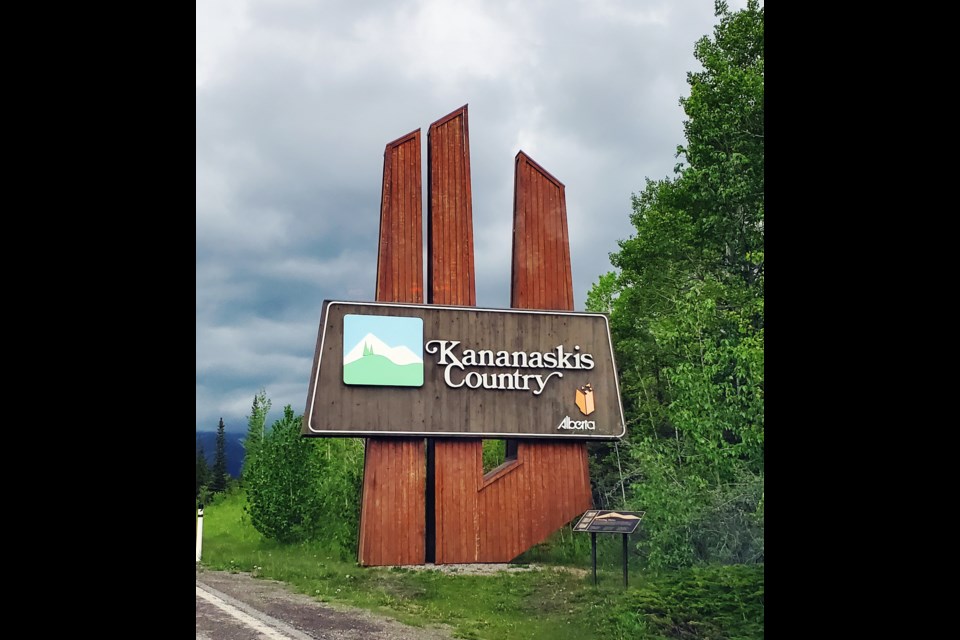KANANASKIS COUNTRY – Alberta Premier Danielle Smith has been leader of the UCP for about six weeks, long enough to act on past comments she made about the Kananaskis Conservation Pass, according to the NDP.
In a Nov. 20 press release, NDP environment critic Marlin Schmidt called Smith out on comments she made in an “Ask Me Anything” video shot during the UCP leadership campaign, where Smith called the K-Country fee “ridiculous” and said she agreed with the opposition’s stance to scrap it.
In response to a question asking what Smith would do about the K-Country pass if elected, she said: “Kananaskis was always supposed to be that open access place for Albertans. The idea that somehow we’re going to improve things and improve the access by charging, what is it, $90 [for a] park pass? That impacts families at a time when everything is going up for families.”
“See, there are areas we can work together with the opposition,” Smith said in the video shot in June 2022.
Schmidt recently sent a joint letter to the Minister of Forestry, Parks and Tourism Todd Loewen and Minister of Environment and Protected Areas Sonya Savage, in response to the video, demanding Smith follow up on her comments to enact legislation removing the pass.
“This is something that could have easily been enacted by now since she was elected,” said Schmidt. “[Smith] hasn’t taken any action and there’s been no response to our letter.”
Schmidt’s letter is the latest in resounding calls from the NDP to scrap the pass – first introduced in 2021 – and make the park more accessible to visitors.
“Albertans are going through the worst affordability crisis in the time that I’ve been alive, and now is the time to help people make ends meet and scrapping the Kananaskis fee is one way to reduce the cost the UCP has piled on Alberta families over the last three years,” said Schmidt.
“The other things that I continue to hear from people is frustration that they don’t see where the money is going. There’s continued frustration in the lack of high quality infrastructure and there doesn’t seem to be any trail maintenance or additional simple things – like repairing picnic tables and making sure garbage is taken care of.”
Overall revenue collected from conservation pass sales last year was around $12 million.
According to the province, $3.5 million from the K-Country pass' 2021-2022 fiscal year was spent on staffing, including more than 30 new seasonal positions; $1.5 million was spent on hiring and supporting conservation officers in K-Country; $1.75 million was spent on operating subsidized facilities including the Canmore Nordic Centre and William Watson Lodge; another $1 million went into planning infrastructure upgrades at the Nordic Centre, and $994,000 was spent on a Town of Canmore regional transit initiative, adding a connection to the Grassi Lakes area.
Another $1.75 million went toward investing in local volunteer organizations, supporting visitor services and information centres, contracting traffic management services, grooming winter trails, and increasing support for search and rescue operations.
According to the province, prior to the conservation pass, about 65 to 70 per cent of K-Country was subsidized by taxes. Now, K-Country is more in line with other parts of the province that charge a user fee, with 60 per cent financed by user fees and 40 per cent by taxes.
If elected in the next election, the NDP has sworn to abolish the conservation pass and has suggested supporting K-Country and other Alberta provincial parks by way of existing taxes, voluntary contributions and personalized licence plate programs that have seen success in British Columbia.
According to the UCP, all revenue collected from the the pass is being reinvested into K-Country, in some form or another. But the government “ducking and dodging” questions around where exactly revenue is spent does little to reassure Albertans of where their $90 annual or $15 per day spend is going, said Schmidt.
In September, an invoice obtained through a Freedom of Information and Privacy (FOIP) request, revealed the province to be paying Global Traffic Group in St. Alberta $166,666 per month to enforce and monitor compliance with the conservation pass.
The three-year contract with Global Traffic Group is worth $2 million per year, according to the province. Compliance, which is determined through licence plate scans, has been about 74 per cent this year.
“They’re spending $2 million per year enforcing the pass – they never mentioned that,” said Schmidt. “They didn’t tell people when they introduced the fee that a good chunk of it would be going toward paying a private company to enforce the fee.
“If Danielle Smith is intent on going back on her word, then at the very least the UCP can publish a comprehensive budget of how much the government’s collected, how much they spent of the revenue and itemize where every dollar has gone.”
The Local Journalism Initiative is funded by the Government of Canada. The position covers Îyârhe (Stoney) Nakoda First Nation and Kananaskis Country.




